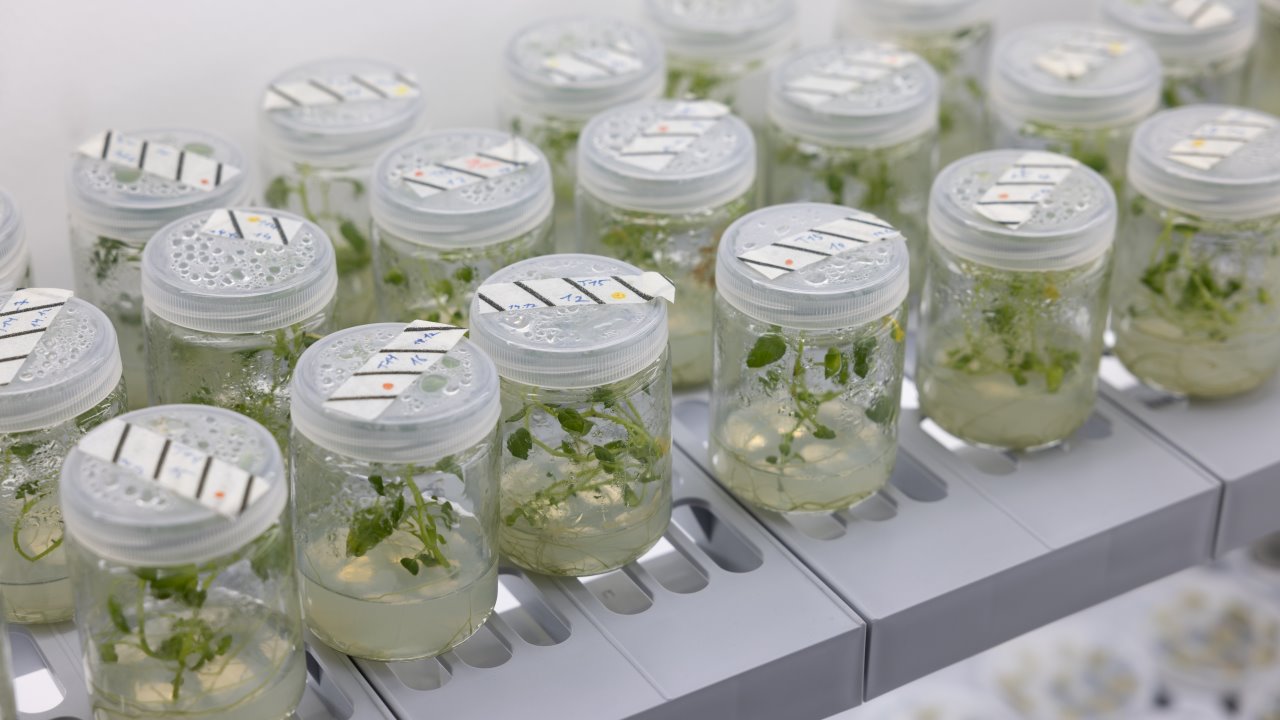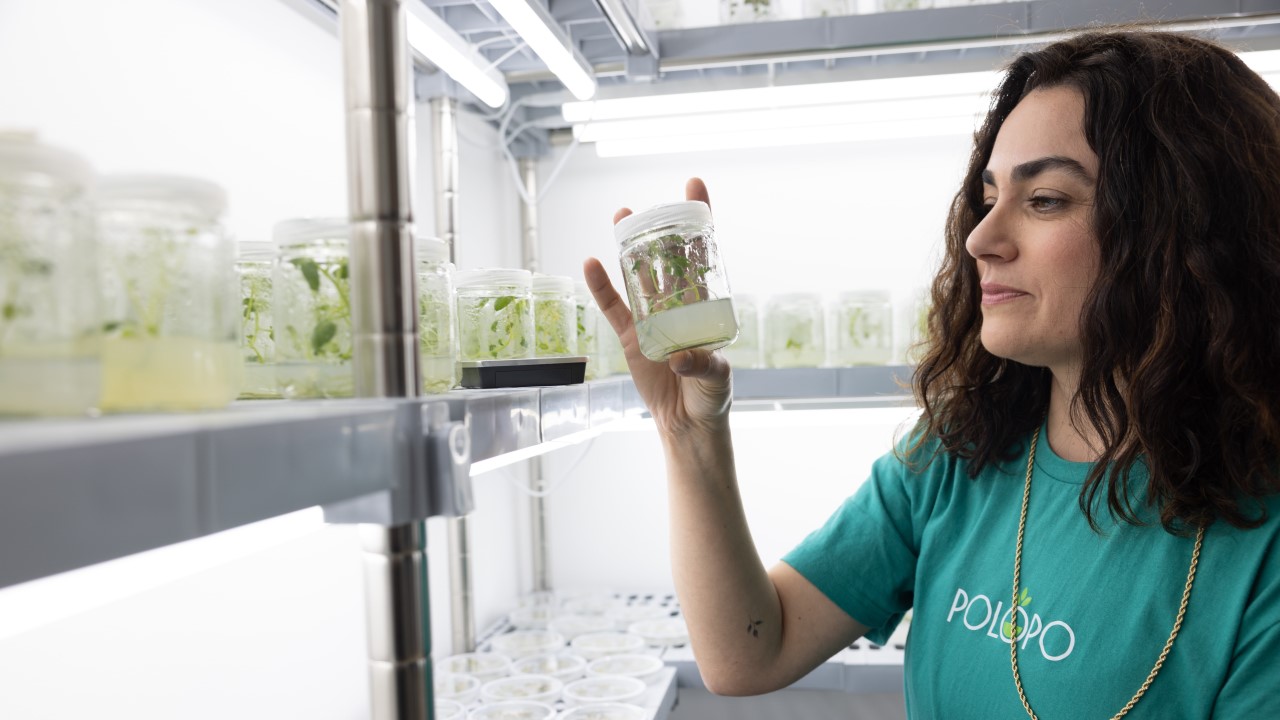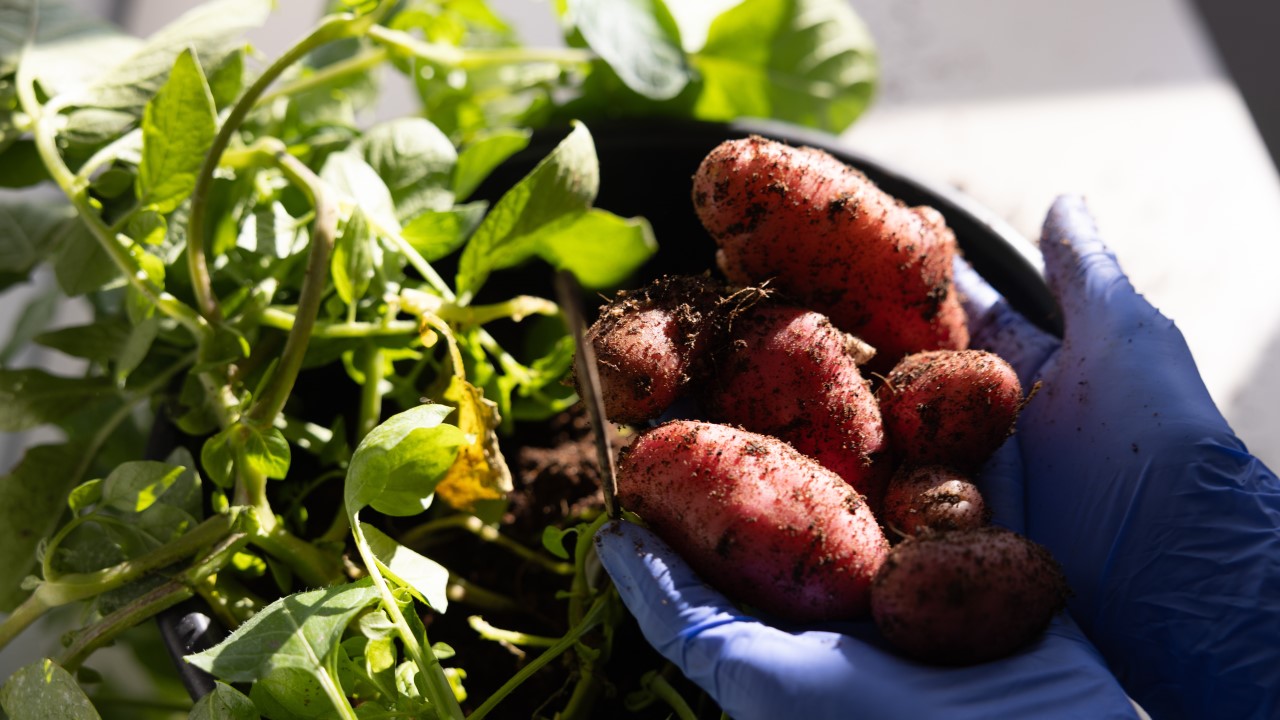Molecular farming pioneer PoLoPo announced its SuperAA platform, the first step to producing proteins in common plant crops. The platform is currently deployed in potatoes at greenhouse scale to generate both a native protein (patatin) as well as egg protein (ovalbumin) through proprietary metabolic engineering techniques.
The cutting-edge SuperAA platform turns the potato plant into a micro-biofactory that manufactures the target amino acids in the plant and stores them in the tuber. Tubers will be harvested when they reach sufficient size, and their proteins are extracted and dried into powder. The resulting powders will seamlessly integrate into current food processing lines and formulations.
PoLoPo has started with potatoes for their resilience in diverse climates, low growth costs, short maturation time, relatively large storage capacity in the form of tubers, high yield per land use, and compatibility with existing harvesting and processing technology. Strategically for PoLoPo’s commercial plans, the potato offers efficiency, sustainability and attractive economic opportunity for established agricultural and industrial food producers, giving PoLoPo a robust and cost-effective path to scale its molecular farming system.

“The SuperAA platform uses plants as living factories, and leverages their natural productivity and storage organs to grow proteins that are identical to protein derived from a chicken’s egg,” said PoLoPo CEO Maya Sapir-Mir, PhD. “The high-scale production of proteins in plants via molecular farming has the potential to economically transform not only potato farming and processing, but broader agriculture and agtech, for a more resilient and sustainable food system.”
The SuperAA platform is currently being used to develop increased patatin and ovalbumin. Ovalbumin is widely used in packaged foods for its functional properties, including texture and stability, as well as for enhancing nutritional value and increasing shelf life. PoLoPo’s ovalbumin offers an affordable alternative to an industry reeling from increased egg prices, supply chain instability, and avian flu outbreaks. The global ovalbumin-powder market is expected to hit $36 billion by 2032 due to increasing consumer preference.
Patatin powder can be used as an allergen-free protein for a variety of products such as plant-based meat and dairy, baked goods, cereals, snacks, beverages, sports nutrition and nutraceuticals. A high-protein potato can also improve food security in regions impacted by malnutrition.

Dr. Raya Liberman-Aloni
PoLoPo was co-founded by Sapir-Mir and Raya Liberman-Aloni, PhD, who serves as its CTO. Both worked in the biotech industry and agricultural R&D for more than a decade following PhD studies at the Hebrew University of Jerusalem and post-doctoral work at the Volcani Institute, Israel’s leading agricultural R&D facility. In 2023, PoLoPo closed a pre-seed round of $2.3 million from leading food-tech investors, enabling it to rapidly develop its potato-to-protein pipeline. The company has won multiple innovation awards and honors including the Coller Startup Competition for Tel Aviv University students/alumni, startup with the most impact potential at FoodHack’s Demo Day, and MassChallenge Israel’s Better Plate Track.
PoLoPo’s protein will soon be available to the food industry for testing. To obtain a sample contact Ido Eliashar, PoLoPo VP of business development and industry relations, ido@polopo.tech.


